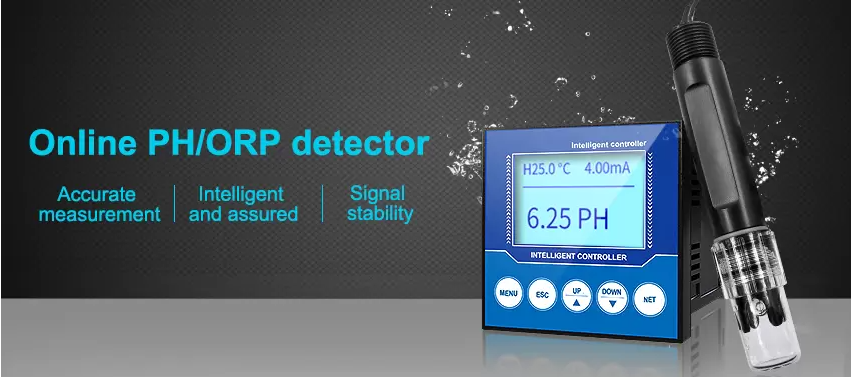With the rise of technological advancements, water quality sensors have become instrumental in monitoring and protecting water ecosystems. This article aims to explore the working principle, applications, and benefits of water quality sensors in enhancing water management and safeguarding environmental health.

Working Principle of Water Quality Sensors
Water quality sensors use various technologies to analyze and measure key parameters that indicate the quality and health of water. The following steps outline their working principle:

Sensor Deployment:
Water quality sensors are strategically placed in water bodies, such as lakes, rivers, and reservoirs, or integrated into water treatment systems. These sensors are designed to collect data on multiple parameters simultaneously.
Parameter Measurement:
Water quality sensors measure essential parameters like pH level, temperature, dissolved oxygen, conductivity, turbidity, and specific ions. Each parameter is measured using dedicated sensors or probes designed to detect the specific characteristics of the water.
Data Transmission:

The collected data is transmitted via wired or wireless communication to a centralized database or monitoring system. This facilitates real-time access and analysis of water quality information.
Data Analysis and Alerts:
The data is analyzed using algorithms to assess the overall water quality and identify any anomalies. If the analysis indicates deviations from desired standards or thresholds, automated alert systems are triggered, notifying authorities of potential issues.
Applications of Water Quality Sensors
Water quality sensors find wide-ranging applications across various sectors involved in water management and environmental protection. Some key applications include:
Drinking Water Safety:
Water quality sensors play a crucial role in monitoring and maintaining high standards for drinking water safety. They detect contaminants like bacteria, chemicals, and heavy metals, ensuring the water meets regulatory requirements before reaching consumers.
Aquaculture and Fisheries:
Water quality sensor are used in aquaculture operations to monitor parameters like dissolved oxygen, pH level, and temperature. This helps maintain optimal conditions for fish and other aquatic organisms, ensuring their health and growth.
Environmental Monitoring:
Water quality sensor are deployed in natural water bodies to monitor pollution sources, assess the impact of human activities, and protect ecosystems. They provide valuable data for environmental research, conservation efforts, and regulatory compliance.
Wastewater Treatment:
Water quality sensor are an integral part of wastewater treatment systems. They monitor the effluent quality, enabling operators to optimize treatment processes and ensure compliance with discharge standards.
Benefits of Water Quality Sensors
The utilization of water quality sensor offers numerous benefits in managing and protecting water resources. Some significant advantages include:

Early Detection of Contamination:
Water quality sensor provide real-time monitoring, allowing for early detection of contaminants. This enables prompt action to mitigate potential risks and prevent the spread of pollutants.
Improved Water Resource Management:
Accurate and continuous monitoring of water parameters helps in understanding water quality trends, identifying pollution sources, and developing effective management strategies to preserve and conserve water resources.
Regulatory Compliance:
Water quality detector assist in meeting regulatory requirements by ensuring that water quality meets established standards. Compliance with regulations helps protect public health, the environment, and avoids legal consequences.
Conclusion:
Water quality sensor emerge as invaluable tools in safeguarding water resources, enhancing environmental protection, and ensuring public health. By actively monitoring key parameters, these sensors enable early detection of contamination, facilitate informed decision-making, and contribute to sustainable water resource management. Incorporating water quality sensor into water management practices empowers stakeholders to take proactive measures, protect ecosystems, and ensure the availability of clean and safe water for current and future generations. Water quality meter play a vital role in advancing water management strategies and preserving our precious water resources.
